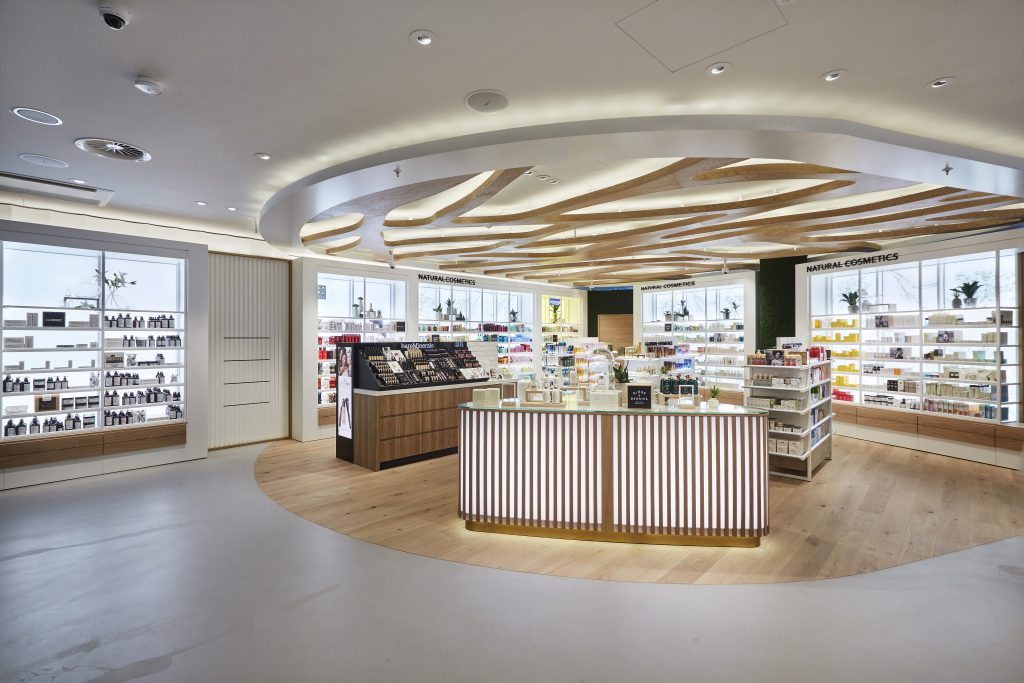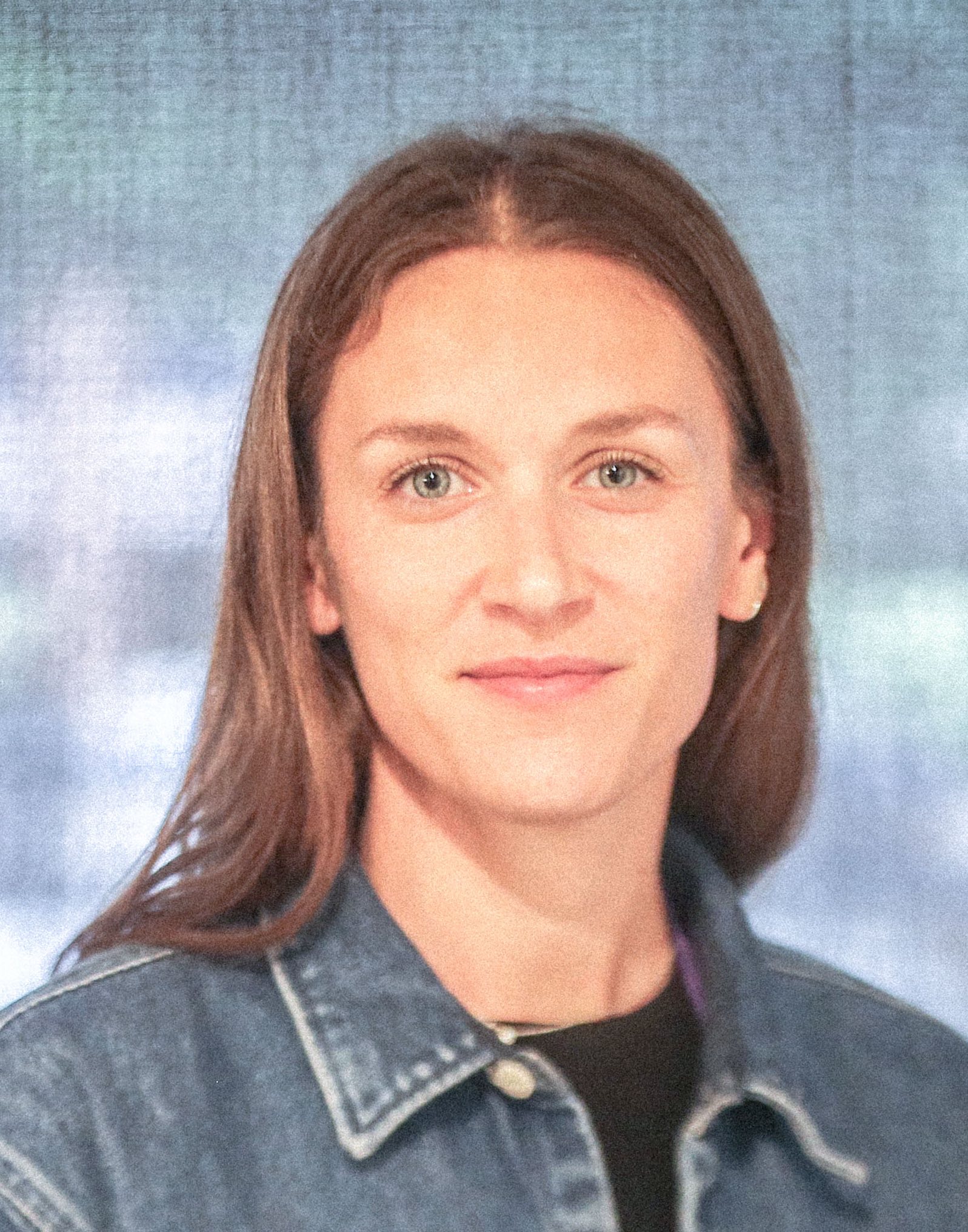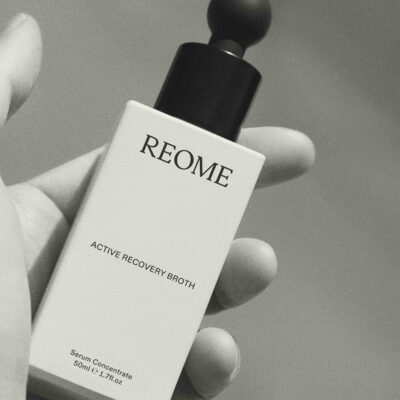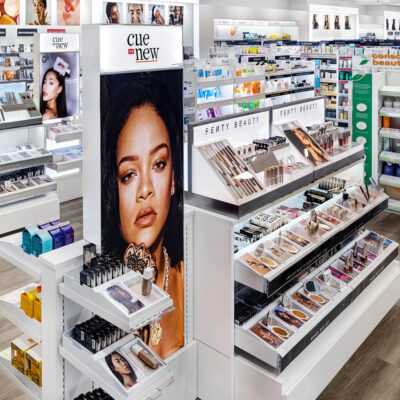
The Gatekeeper: Christoph Honnefelder On What Makes A Brand Intriguing To Top European Beauty Retailer Douglas
Any brand scoring placement in one or all of European beauty giant Douglas’s 2,400 stores over the last nearly four years had to go through Christoph Honnefelder and his team. After Oct. 31, however, they’ll have to face a new gatekeeper. The executive vice president for group purchasing and assortment is departing Douglas to pursue new professional opportunities, and Isabell Hendrichs, formerly buying director for beauty and health at QVC, will take over his role. As he readies for his exit, Honnefelder spoke with Beauty Independent to reflect on his time at the retailer, provide a peek into his thought process, offer recommendations for brand founders and explain why he’s bullish on indies attracting a broad clientele.
The Trend Table, a display focused on small brands, is in around 50 of the 430 German stores. What’s behind Douglas’s interest in indie brands?
We are interested in labels that are interesting for our customers. Customer needs have changed, and they are more specific and diversified today. Some people are looking for vegan makeup. Others want to buy products that are 100% clean or contain only certain ingredients. Others are only interested in CBD products. Today’s customers are much more aware and, thus, interested in a wide variety of topics such as sustainability, and indie brands often meet these customer expectations and needs.
What’s the added value that indie brands deliver?
Above all, they are innovative. Small, independent brands can act on trends in a much easier and faster way than established brands from large corporations. This makes it possible for them to respond flexibly to smaller target groups with specific needs. For example, even if a well-established brand wants to launch a CBD product from one day to the next, it will prove to be difficult. For large companies, a product launch requires many complex, time-consuming processes. It’s much easier for Indies.
“On the one hand, a label must always create added value, something consumers don’t yet know and that’s new to them.”
Do larger companies learn from the smaller brands that are closer to the market?
Sure! Of course, the large companies see how fast the market is changing and are keeping a close eye on those developments. We at Douglas are committed to promoting innovative entrepreneurs and small brands. This is how we can leverage our own potential and that of the indie brands.
What market segments do you forecast indies making headway in?
It is necessary to take a closer look at the individual categories. When it comes to the fragrance segment, I believe the big players will keep the lead and rule the market. In this area, there certainly is a great demand for artistic, unique and luxurious niche fragrances. But, even though the segment is growing strongly, and we will become more active there, the indie segment probably will remain minor for the foreseeable future. With the segments within makeup and skincare, things look different. Smaller niche indie brands will be able to claim a certain share of the market there. It is difficult to make concrete forecasts, but we expect substantial growth in this market segment. We at Douglas will certainly add yet more indie brands to our lineup in the next few years.

What intrigues you about a brand?
It’s a combination of several factors. On the one hand, a brand must always create added value, something consumers don’t yet know and that’s new to them. On the other hand, this should preferably be associated with a strong communication strategy and marketing story. We often meet entrepreneurs who have developed a great product, but both their packaging and communication strategies need to be improved.
However, those two elements aren’t a guarantee of success either.
Exactly! Of course, we know our customers very well—and their preferences and needs. In the end, however, we can’t predict what exactly the customer will buy, which brand will work best and which brand is likely to maintain its position in our product range with lasting success.
“There’s a lot of competition, but when you are a brand and you are sure about who you are, what you offer and why this offer is better than competing products, you are a big step closer to success.”
What mistake do young brands make?
Small brands often assume that they will immediately be on the shelves in all of Douglas’s 2,400 stores in Europe once we have included them in our portfolio. Since you don’t know beforehand how the brand will be accepted, this is neither the right approach for us nor for the brand. Many brands do not have the necessary power to succeed in managing the whole processes. So, many things have the potential to fail. It is, therefore, better to start small and roll out the brand larger once it proves successful and our processes run smoothly. And I always teach small labels that they need to have their own ideas on how to promote and market their brand because they know best what their brand and their success story stand for. They can communicate their message in a more authentic and credible way than anyone else. Of course, we are there to support them with our own marketing and communication power and expertise. However, every small brand should also be motivated by their mindset to manage it on their own.
What’s your advice for indie brands?
You must take the lead and get things done. Social media in particular can make a big difference these days. You don’t have to be a large brand for that.
Do your customers prefer to shop for indie brands offline or online?
Generally, our customers buy indie brands using both channels. Since the target group is often younger and searches very specifically for certain topics, the share of online sales among indie brands is significantly above average.
What does it take to succeed at Douglas?
It must be clear what the brand stands for, what the product does and why this product is better or different than what is currently available on the market, and all this communicated without the slightest doubt. It’s the only way to appear confident. And this is the only way the brand message will reach us, allowing us to train our beauty experts in the stores, who in turn pass it on to our customers. If that doesn’t work, you can hardly assert yourself as a brand with a major beauty retailer. There’s a lot of competition, but when you are a brand and you are sure about who you are, what you offer and why this offer is better than competing products, you are already a big step closer to success.





Leave a Reply
You must be logged in to post a comment.